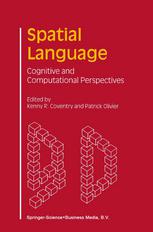

Most ebook files are in PDF format, so you can easily read them using various software such as Foxit Reader or directly on the Google Chrome browser.
Some ebook files are released by publishers in other formats such as .awz, .mobi, .epub, .fb2, etc. You may need to install specific software to read these formats on mobile/PC, such as Calibre.
Please read the tutorial at this link: https://ebookbell.com/faq
We offer FREE conversion to the popular formats you request; however, this may take some time. Therefore, right after payment, please email us, and we will try to provide the service as quickly as possible.
For some exceptional file formats or broken links (if any), please refrain from opening any disputes. Instead, email us first, and we will try to assist within a maximum of 6 hours.
EbookBell Team

4.3
98 reviewsPeople constantly talk to each other about experience or knowledge resulting from spatial perception; they describe the size, shape, orientation and position of objects using a wide range of spatial expressions. The semantic treatment of such expressions presents particular challenges for natural language processing. The meaning representation used must be capable of distinguishing between fine-grained sense differences and ambiguities grounded in our experience and perceptual structure. While there have been many different approaches to the representation and processing of spatial expressions, most computational characterisations have been restricted to particularly narrow problem domains. The chapters in the present volume reflect a commitment to the development of cognitively informed computational treatments of spatial language and spatial representation. Therefore the chapters present computational work, empirical work, or a combination of both.
The book will appeal to all those interested in spatial language and spatial representation, whether they work in artificial intelligence, cognitive science, cognitive psychology or linguistics.